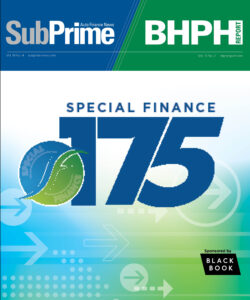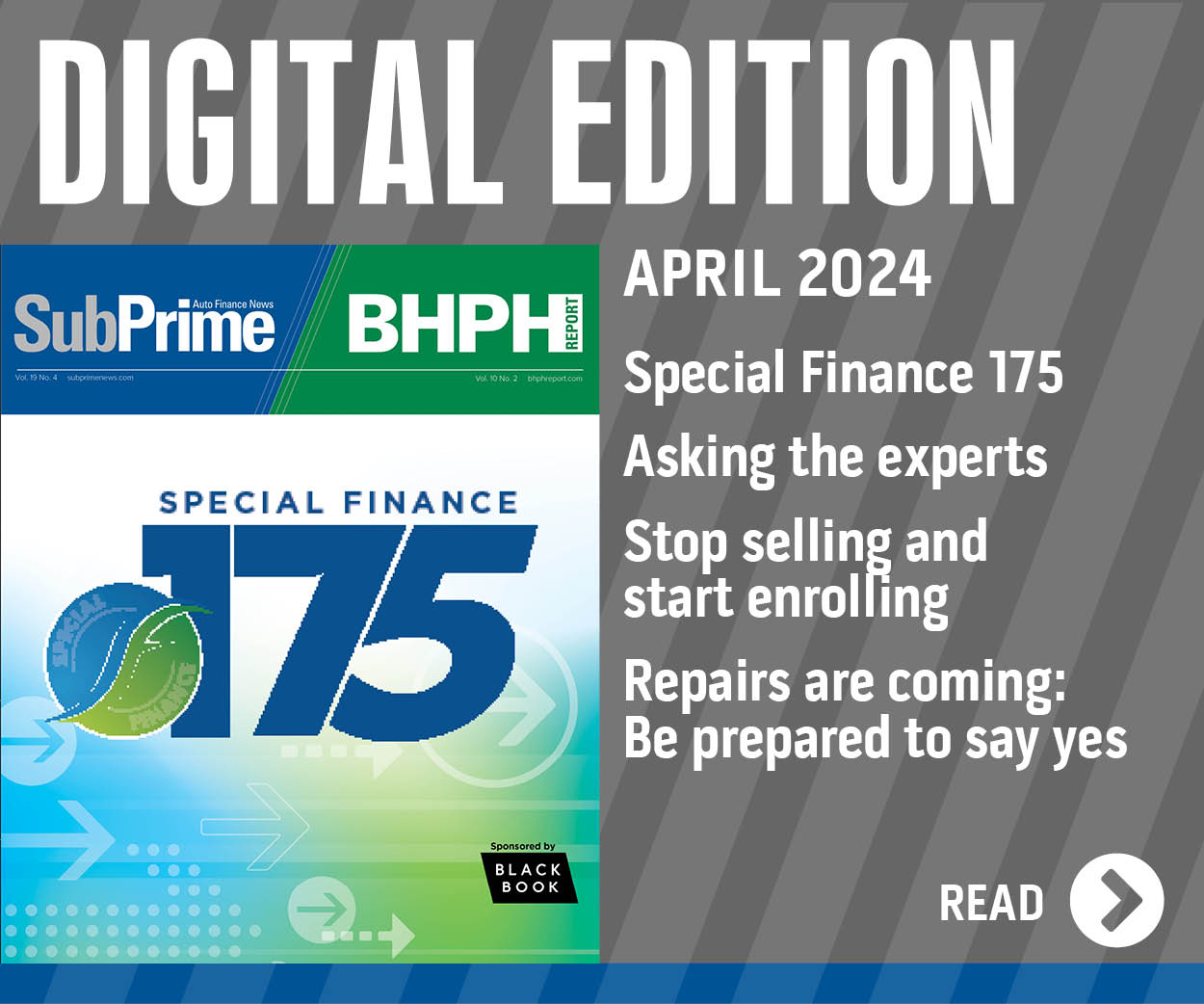Despite Comment Time, Little Can Slow CFPB’s Rule Proposal

It’s been nearly two weeks since the Consumer Financial Protection Bureau revealed its proposed changes for what is classified as a larger participant in auto financing. More than half the time is remaining in the 60-day comment period the CFPB has in place. Still, auto finance legal expert Michael Thurman isn’t expecting dramatic changes from what the bureau outlined during its field hearing last month.
“I’m aware of no obstacle that would prevent the CFPB from implementing this rule,” Thurman told SubPrime Auto Finance News. “The way the process works, the agency will take comments from all sources including consumers, the industry and legislators. But at the end of the day, the CFPB has spent a significant amount of time making its determination of what an appropriate level is to set the barrier for being a larger participant. The agency has the authority to do that under the Dodd-Frank Act. I don’t expect any substantial changes to the rule from what we’re seeing. In fact, I’d say there’s a good chance that the rule we’re seeing now will be the rule that’s adopted.
“That doesn’t mean the agency won’t consider the comments that are made, but I don’t see them making any significant alterations in for example the definitional changes their proposing or the calculation by which they’re going to determine larger participants of this industry,” continued Thurman, a former partner at Loeb & Loeb who opened his own firm in Pasadena, Calif., earlier this year.
To recap, if a finance company makes, acquires, or refinances 10,000 or more vehicle loans or leases in a year, the CFPB is looking to become that operation’s primary regulator stemming from a proposal disclosed during a bureau event on Sept. 18 in Indianapolis.
The bureau said this proposed rule would generally allow the CFPB to supervise nonbank auto finance companies to ensure they are complying with federal consumer financial law. Bureau officials estimated that about 38 auto finance companies would be subject to this new oversight.
Organizations such as the American Financial Services Association didn’t need 60 days to make a comment. Senior vice president Bill Himpler was part of a panel discussion during last month’s field hearing and made concerns known immediately.
“AFSA remains concerned that the bureau continues to issue larger participant rules that capture market participants that, for lack of a better term, are not large by any stretch of the imagination,” Himpler said.
“Many of the market players that will be subject to the proposed rule have well below 1 percent of market share. According to Experian data, companies below the top 30 have less than a half a percentage point of market share in vehicle finance,” he continued.
“Above all, the vehicle finance industry wants to comply with the law and the regulations that are set forth by the bureau, as well as continue to play a positive role in the American consumer experience. Industry stands ready to work with the CFPB to develop regulations that protect consumers and simultaneously ensure that Americans have access to safe and affordable consumer credit,” he went on to say.
Despite the objections, Thurman acknowledged the latest moves the CFPB made were not unexpected.
“It’s something that we’ve been looking for since late in the spring when the CFPB indicated it would heading in this direction. And even going farther back to 2012 when it initially announced the direction it was heading with respect to indirect lending and its fair-lending practices in the fact that they view it as applicable to loans that are being done by dealers that are ultimately financed by auto lenders,” he said.
Thurman did mention one expectation he said wasn’t met by the CFPB in its latest action. He was looking for an addition section to the bureau’s supervisory manual that would assist finance companies in knowing exactly what regulatory concerns are covered with respect to auto lending. Thurman suggested the CFPB will continue to focus on several areas of its current manual that are connected to unfair, deceptive or abusive acts or practices (UDAAP), credit reporting, fair lending, debt collection and truth in lending.
“It would have been great for the industry if the agency had come out with a specific set of guidelines that accompany this announcement because then I think they can focus even further on what they need to be ready for an examination,” Thurman said.
Without more specifics, Thurman recommended that finance companies continue to enhance their compliance programs.
“Hopefully, they all have been already bracing for not only this announcement, but also bracing for supervision by the agency even in the form of subpoenas or civil investigative demands. Obviously the auto finance industry has known for some time that the CFPB has some jurisdiction over the industry. The only new news here is which companies, in particular, will be subject to onsite examinations on a periodic or regular basis,” Thurman said.
Thurman speculated that larger finance companies likely have been dissecting the CFPB supervision manual, spending a significant amount of time in discussions with their attorneys and compliance staff, building out procedures to make sure they comply with the CFPB rules.
“The difficulty may be for some of the companies that are closer to the line, but my hunch is that’s a relatively small number of companies that have been identified for supervision. My hunch is every company in that group probably assumed they were going to be included in this process,” Thurman said.
“I don’t expect any of them will slow down on their efforts to build out their compliance management systems,” he continued. “The fact that this announcement has been made tells everyone that the time is coming very soon when they’re actually regulators coming to visit them. The efforts that they have been doing are going to have to be as far along as they can be.
“If I were going to give advice to companies that find themselves within the group that will be subject to onsite examinations, I would tell them to keep the pedal to the metal in building out their compliance management systems and continue doing the things they’ve been doing for the last few months and years,” Thurman went on to say. “Don’t slow down in terms of preparations for when the CFPB actually shows up at their door.”
A way finance company executives can keep the “pedal to the metal” as Thurman indicated is by attending this year’s SubPrime Forum during the opening days of Used Car Week.
One of the presentations during the SubPrime Forum — an event orchestrated in partnership with the National Automotive Finance Association — is from the team at McGladrey, which is gathering together strategy recommendations to enhance regulatory compliance moves executives might have already put in place.
McGladrey will be conducting a session during the SubPrime Forum where attendees can learn how to implement, maintain and provide governance oversight for their compliance management system based on the latest mandates issued by the bureau, which is taking a hard stance on this issue based on the enforcement actions the agency has taken during the past year.
Attendees will leave the Red Rock Casino, Resort and Spa in Las Vegas with a plan of action for when — not if — the CFPB arrives ready to conduct a thorough investigation.
The SubPrime Forum begins Nov. 10 with registration and a welcome reception before launching into a full day of events on Nov. 11, followed by a half-day of sessions on Nov. 12.
For a full schedule of events, visit http://subprime.autoremarketing.com/agenda, and be sure to register for the event by Oct. 10 to save $200 off of your registration fee. And once you’re registered, don’t forget to make your hotel reservations at the Red Rock Casino, Resort and Spa in Las Vegas. The exclusive conference rate of $195/night is available only through Oct. 17.

 View The Latest Edition
View The Latest Edition

